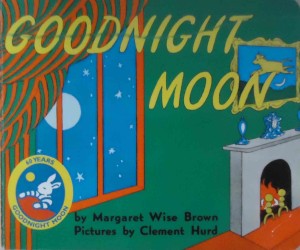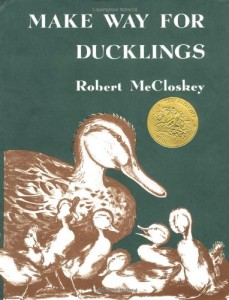Author’s Note: Inspired by a conversation in the comments on File 770, I’ve decided to re-post my story “The Redundant Man Who Was Redundant”. This and six other short stories are available in my collection The Lands of Passing Through, for Kindle , Nook, or as a mult-format bundle (Kindle, Epub, HTML, and PDF) direct from me. All versions are are DRM free. Enjoy!
, Nook, or as a mult-format bundle (Kindle, Epub, HTML, and PDF) direct from me. All versions are are DRM free. Enjoy!
The Redundant Man Who Was Redundant
By Alexandra Erin
“According to a CNN news network story, the selling of the MTV music television station could result in…”
In his office in the Department of Redundant Acronyms, Steven Stevenson II groaned and turned off the television. Every day… all day… the hits just kept coming. He looked back at his computer monitor, at the message he’d been typing to the third largest bank in the country. The first and second largest had already served him with cease-and-desist orders for “pestering” them with his “prank messages”.
It all seemed so pointless, sometimes… especially when he glanced at the letterhead at the top of the screen and saw the words “DORA Department”. That hadn’t been his idea, to be sure… and now he was getting memos from the BSA suggesting it be shortened to “DORAD”.
He needed to get out.
“Hold my calls, Dora,” he said to his secretary on the way out the door. “I’m going to lunch.”
“Don’t forget the man from the central CAO office is coming by this afternoon!” Dora reminded him.
Steven Stevenson II sighed heavily and rolled his eyes.
The part about lunch had been a damnable and odious lie, of course. He had, in fact, gone to a bar. It wasn’t the sort of bar that served food, beyond the pickled and salted variety. It wasn’t a dive, either… it was simply a dedicated outlet for serious drinking. Stevenson wasn’t always a serious drinker, but he refused to confront the CAO man on an empty liver.
“You look like a man who’s coming to realize the crushing weight of futility that is your life,” the obnoxious stranger intoned pompously as he grabbed the stretch of bar adjacent to Stevenson.
“What makes you say that?” Stevenson asked without much interest.
The man had the look of a man who was losing his hair. He wasn’t, though. He just had that look. Probably he was, Stevenson decided, but could afford to have it all regrown. The man had a face like a putrescent walrus, but he’d paid good money to have his hair loss reversed.
“There are only three reasons for a man to be in a place like this around lunch time,” the man said. “Either he’s celebrating, he’s coming to realize the crushing weight of futility that is his life, or he’s having a meeting. You’re not having a meeting, and you don’t look like you’re celebrating… ergo, you’re coming to realize, et cetera, and so forth.”
“Congratulations, you’ve figured me out,” Stevenson said, raising his glass in a mock toast. “Is that what you’re celebrating? The defeat and misery of others?”
The man chuckled.
“Oh, in a roundabout way, I suppose, in a roundabout way,” he said. “But, I didn’t mean to inflict my personal joviality upon you, no… I just wanted to give you my card.”
“Are you some kind of psychiatrist?” Stevenson said, looking at the edge of the cream colored bit of parchment disdainfully.
“No, nothing like that, nothing like that at all. I deal in more permanent solutions,” the man said. He held out the card more forcefully. “Go ahead and take it… it won’t bite,” he said, chuckling again.
Stevenson did, and actually looked at it. The gold-embossed logo declared that the man worked for the TastyFlesh Human Resources Company, and that his name was Orville Smith.
“Thank you, but I have a job,” Stevenson said.
“Good job?” Smith asked. “Satisfying work?”
“It’s a job I believe in,” Stevenson said testily, because it hadn’t been all that satisfying as of late.
“What do you do?” Smith asked.
“I head up the Department of Redundant Acronyms,” Stevenson said.
“Oh, the DORA department,” Smith said, nodding sagely. Stevenson winced. “Not exactly the, uh. largest or most prestigious branch of the federal bureaucracy, is it?”
“I didn’t pick it for the prestige,” Stevenson said, and Smith snorted.
“No, I’d guess not,” he said. “Anyway, I’m not offering a job, per se… more of an opportunity.”
Great, Stevenson thought, here comes the pitch.
“The earth is overcrowded,” Smith began. “You know that. Everybody knows that. The price of everything is going up, especially food. Well, no… especially fuel, but food’s got to come from somewhere, right? You can’t really grow it in the cities…”
“Actually, I read an interesting article about the new hydroponics pilot program in Chicago, and then there’s rooftop gardens,” Stevenson interjected. “And the new synthetic meat cultures can be grown anywhere there’s proper facilities. They’re doing interesting work in Nairobi with…”
“Will you quit interrupting me, man?” Smith said. “You can’t grow food in the cities and the bottom line is it’s getting harder and harder to find any arable land that isn’t covered by a city. Past generations supposed we could solve this problem with space travel, colonizing the moon and Mars, but we now know the whole idea of space exploration is a bust. So, what’s left?”
“Tell me,” Stevenson said.
“In a word, sir: cannibalism.”
“Cannibalism?” Stevenson echoed.
“That’s right, cannibalism,” Smith said. “We predict it’s going to be the biggest growth industry of the coming decade, and TastyFlesh is going to be at the forefront of it.”
“That’s… illegal,” Stevenson said. It was also immoral, amoral, unethical, and several other things, but he had a feeling that none of those would really bother Orville Smith.
“For the time being, yes,” Smith said. “But, we’re in this for the long haul. See, we draw up contracts… life-long, ironclad contracts… and our employees get a nice competitive wage paid out every other week, full insurance, vacation, all the usual benefits… ”
“Wages for what?” Stevenson asked.
“Just for being available,” Smith said. “Our employees come into our facility every day—barring those vacation days—and just sort of lounge around. They can bring books, magazines, portables… we don’t expect them to actually do anything. Actually, we discourage it. Just enough exercise to stay healthy, not enough for them to get all stringy.”
“But, how do you make any money?” Stevenson asked.
“We’ve got some of the best lobbyists in Washington working 24/7 on this whole ‘cannibalism’ thing, and when it’s inevitably legalized… that’s when it’ll all pay off,” Smith said.
“You really think it’s inevitable?” Stevenson asked.
“Absolutely inevitable,” Smith said. “Say, man, don’t you read? Malthus. Swift. It’s all there in black and white, ready to be discovered.”
“I think you’ll find that Swift’s A Modest Proposal was, in fact, a work of satire,” Stevenson said.
“His what?”
“The work you’re referring to,” Stevenson said. “A Modest Proposal. He wasn’t actually advocating cannibalism as a means of alleviating the burdens of the poor, he was using that idea as a satirical vehicle. As for Thomas Malthus, he failed to take into account technological advances that would increase the rate of food production until it exceeded that of population growth.”
“Ah, well, whatever you say,” the man said. “Haven’t read any of that myself. It’s just some names that crop up in the corporate literature. Anyway, look at it this way: supply and demand. If there’s a shortage of food, then anything which increases the food supply while decreasing the demand has got to be good.”
“But, the actual problem of overpopulation derives from a scarcity of resources,” Stevenson said.
“Right,” Smith agreed. “And legalizing cannibalism would add resources to the pool.”
“It actually wouldn’t, though,” Stevenson said. “Not in the long term. All those people you ’employ’ have to be fed the same as any other person…”
“Well, that’s why we pay them a good wage, obviously,” Smith interjected.
“Yes, but don’t you see, they’re still consuming their share of resources,” Stevenson argued. “For eighteen years… I assume you’re only signing up adults?”
“Of course, man, what do you take us for?” Smith said.
“So, for a minimum of eighteen years, they’ve been consuming just like any person. And because human being are not in fact cattle, a good portion of the food they’ve taken in will never be recouped,” Stevenson said. “The human brain is a marvel of evolution, but it’s a woefully inefficient source of sustenance.”
“Well, who wants to eat a brain?” Smith retorted.
“Yes, but, you see, a great deal of the nutrition that we consume goes to support our brain,” Stevenson said. “This is just one reason why big, dumb animals are preferable as a food source over smart, shrimpy ones.”
“That may all be true,” Smith said, in a tone of voice which suggested he suspected otherwise. “But… we aren’t feeding them for eighteen years. Just from the time they sign up with us until we get the legislation pushed through.”
“It doesn’t matter who’s feeding them,” Stevenson said. “The point is that they’re still taking the same share of resources for those years.”
“So, what’s your point?” Smith asked.
“That if the idea is to reduce demand for scarce resources, then raising human beings for slaughter is a woefully inadequate way of going about it,” Stevenson said.
“Well, that’s the larger idea, yes,” Smith said. “But we’re a private company. All we really need to do is turn a profit.”
“But the cost of supplying a human being with the necessities of life even for, say, a year… including not just food, but housing, clothes, transportation, and modest entertainment all add up… putting together a wage and benefits package that’ll seem competitive to any other job… has got to be higher than that of bringing to market an animal that’s been raised in a box and doesn’t need anything but nutrition and medicine,” Stevenson said. “How can you possibly hope to break even if you have to invest that kind of money into a single one of your—I can’t believe I’m saying this—feed animals?”
“Well, I’m not an accountant, am I?” the man replied, sounding offended. “Damn it, man, I’d hate to see that kind of talk getting to our investors. We’ve got experts looking over all our numbers at all times, and they assure us it’s a sound principle.”
“Just assuming for a moment that you ever do manage to get this thing legalized, how exactly do you intend to stay in business?” Stevenson asked. “Don’t you think your pool of volunteers will dry up once people realize it’s not just a cushy job that pays them money to lounge around?”
“Of course,” Smith said. “But that’s the beauty part… once it’s legal, that frees up our paid lobbyists to start pushing for, shall we say… broader channels of acquisition.”
“Disgusting,” Stevenson said.
“Hey, just because your job’s a joke is no reason to go raining on my parade!” Smith said.
“Now to begin: you’re the Secretary of the DORA department, are you not?” Clark Whizenby, the CAO man, asked Stevenson at the outset of their meeting.
“It’s just DORA, actually,” Stevenson said.
“Do you mean to tell me that it’s not a department?” Whizenby asked.
“It is,” Stevenson said as patiently as he could, “but that’s what the ‘D’ stands for. When you say ‘the DORA department’, you’re actually saying ‘the Department of Redundant Acronyms department.'”
“Well, I think what I’m saying is, ‘the department that’s called DORA’,” Whizenby countered. “That ‘redundant’ word, as you call it, conveys meaningful information about the agency’s organization.”
“In that case, why not just say ‘Department ORA’, or ‘the ORA department’?”
“Well, because ‘ORA’ is not the BSA bureau’s standard acronym,” Whizenby said. “In fact, that brings me to why I’m here.”
“Of course,” Stevenson said. “The BSA chief has petitioned to have DORA moved underneath him again.”
“Not quite,” Whizenby said. “He’s proposed liquidating the entire department and absorbing its functions.”
“Is there a difference?” Stevenson asked.
“Only to people who are currently employed by this department,” Whizenby said. “Which, if I’m not mistaken, is not many people at all.”
“No, you’ve cut our budget several times,” Stevenson said. “It’s… actually just me, and my secretary, Dora.”
“Right,” Whizenby said. “Well, in situations like this, I like to begin by telling a little story. Twenty years ago, before the central CAO office really came into its own, there used to be a national administration called NASA.”
“I think I’ve heard of it,” Stevenson replied sardonically.
“National Aeronautics and Space Administration,” Whizenby said. “Annual budget of tens of billions of dollars every year. Why, we could have paid for three months of war on the money NASA was getting every year. At the same time, we had another administration called the FAA… the Federal Aviation Administration. Their annual budget was only half of the NASA administration’s, but that’s still, as they say, quite a chunk of change. Then, some bright young egg at the fledgling central CAO office pulled out a dictionary and realized that ‘aeronautics’ and ‘aviation’ were practically the same damn thing!”
“And the rest, I suppose, was history,” Stevenson said.
“Damn straight it was,” Whizenby said. “We took a look at both administrations’ books and realized that the FAA was overseeing thousands of flights on the same budget which NASA used for a handful of flights. So, we folded NASA into the FAA… I don’t need to tell you, there was a lot of controversy at the time, but history has vindicated the decision: in the intervening two decades, there’s been no meaningful scientific exploration of space… no lunar colonies, no domes on Mars, nothing.”
“Maybe not in this country, but India and China have both established…”
“Third-world countries!” Whizenby said.
“Excuse me, but China is the world’s largest…”
“Are you going to let me finish a thought or not?” Whizenby said. “China and India are nothing. We’re the world leader in space exploration, and what do we have to show for it? It’s all commercial… space tourists and communications satellites. The American people should pay billions for a separate organization to oversee that?”
“By that ‘logic’,” Stevenson said, smiling pleasantly and keeping as much sarcasm out of his voice as he could, “wouldn’t it make sense to fold the BSA’s functions into DORA? After all, we make do with a shoestring budget.”
“It’s not just that the FAA had the smaller budget,” Whizenby said. “They produced more with that budget. They were efficient. You, on the other hand… well… we’ve never been quite sure what the point of the DORA department was in the first place. What exactly do you do here?”
“I help to maintain the integrity of the English language in an age of increasing abbreviation,” Stevenson said.
“That’s what the BSA does,” Whizenby said.
“Not quite,” Stevenson said. “Their only concern is that everybody uses the same set of acronyms.”
“How’s that different from what you do?” Whizenby asked.
“It’s completely different,” Stevenson said. “We… that is to say, I… work to insure that… well, let me give you an illustrative example. Let’s say you’re going to the ATMM to take out some money. You put in your card. What does it do?”
“The card?”
“The machine, Whizenby. What does the machine do when it has your card?”
“Well, I suppose it asks me for my PINNN number, doesn’t it?” Whizenby asked.
“Right,” Stevenson said. “Except, you don’t actually need to say ‘number’ because that’s what the ‘n’ stands for in PINNN.”
“Which one?”
“All of them,” Stevenson said. “See, when the system was devised, in the late 20th century, the code was simply referred to as a ‘PIN’, which stood for ‘Personal Identification Number.’ Almost immediately, though, people… as well as the institutions which utilized such things… began referring to it as a ‘PIN number.'”
“And that was bad because…?”
“Because it wasn’t long before some bright egg decided to shorten it to ‘PINN’ with an extra ‘N’, and the whole thing started again,” Stevenson said. “Look, Whizenby, I know what mainly concerns you is efficiency. Think about how often the word ‘PINNN’ or the phrase ‘PINNN number’ are written, printed out, or saved into a database somewhere. Imagine if we could save all the ink, toner, space, and other associated resources being used up by those extra trailing letters and the redundant word? Wouldn’t that be a good thing?”
“It would, but we have to consider usefulness, too,” Whizenby said. “For instance, if you’re dialing into one of those automated AMS menu systems, and the voice just asked you to key in your PINNN, you can’t see how it’s spelled or capitalized, so there’s no way of knowing it’s not asking for an ink ‘pen’ to write with, or a stick ‘pin’, or your numerical ‘PINNN’… though by tacking that one extra word onto it, the meaning is made clear. It may be redundant, but it’s not superfluous.”
“Well, that as may be, yes,” Stevenson said. “But wouldn’t the meaning be made clear by context? Of the things you mentioned, only one of them can possibly be keyed in or otherwise offered over a phone, and certainly only one makes sense in any situation where an AMS attendant is asking for something.”
“A well-worded communication doesn’t require the listener to figure out what they are being told, because it tells them that outright.”
“Well, even if there is some slight advantage to making the numerical nature of the PINNN explicit over the phone,” Stevenson said, “then there’s still no reason to include the redundant appendage it in written matters, is there?”
“Separate standards for written and verbal communications? That’s too complicated… it’d never fly,” Whizenby said. “Plus, whatever tiny gains we’d realize from not printing the extra letters would probably be eaten up by all the clarifications and memoranda and such that would need to be issued to explain the discrepancy. Anyway, it hardly seems like it’s the end of the world if an ATMM machine asks me for my PINNN number.”
“Look, I don’t ask for much,” Stevenson implored. “Cut my budget again, if you have to. I don’t need a secretary. Just let me keep doing this, if for no other reason, then so that twenty years from now you’re not leaving the CCAOOO office and putting your P-I-N-N-N-N-N number in a damned ATMMMM machine.”
“Do you really think it’s likely to go that far?” Whizenby asked.
“There are three Ns in ‘PINNN’ already,” Stevenson countered.
“Right, and I think most people would agree that’s plenty,” Whizenby said.
“More than plenty,” Stevenson said.
“Then we’re agreed,” Whizenby said. “Look, normally, we either eliminate or merge… one or the other, never both… but… the odds are there’s at least one opening in the BSA at your pay level. Actually, I take that back; they don’t have any positions that pay so little. The point is, if your work is so important to you, then it wouldn’t take much shuffling to get you a job over there.”
“But what they do is antithetical to my work,” Stevenson said.
“That being the case, one might very well ask why the citizens of this country are paying two arms of the government to work towards opposite goals in the first place,” Whizenby said. “I think a reasonable person would agree that the ultimate goal of all is to make sure the language is easy to use and easy to understand… and that being the case, the real redundancy is having two separate agencies going about it in differing ways.”
“But…”
“I think I have everything I need from you, Mr. Stevenson,” Whizenby said. “You will receive an official notice of the central CAO office’s decision within three days… followed swiftly by an order to vacate the premises.”
“Bad news, sir?” Dora asked Stevenson.
“The worst,” he said. “They’re shutting us down in three days.”
“Well, it’s not much, but at least I’ll have a chance to use the new letterhead before we go,” Dora said.
“What new letterhead?” Stevenson asked.
“This,” Dora said, holding up a sheet of paper with the word “TEST printed on it. “It just arrived from the BSA bureau.”
Stevenson gritted his teeth. The logo at the top of the paper read now read “DORAD”.
“I suppose I can take some small comfort in the fact that I won’t have to see that become ‘DORAD Department’,” Stevenson said.
“What?” Dora asked.
“Nothing,” Stevenson said. “Well, I suppose we’d better start looking for new jobs, anyway.”
“Oh, I’ve got that covered,” Dora said. She rummaged in the papers on her desk and found a pamphlet. “This new company’s hiring loads of people… no qualifications needed, just a medical exam, and you don’t even have to do any work. It’s called TastyFlesh HR. Have you ever heard of them?”


 STREGA NONA
STREGA NONA ALEXANDER AND THE TERRIBLE, HORRIBLE, NO GOOD, VERY BAD DAY
ALEXANDER AND THE TERRIBLE, HORRIBLE, NO GOOD, VERY BAD DAY GOODNIGHT MOON
GOODNIGHT MOON Make Way For Ducklings
Make Way For Ducklings Richard Scarry’s Best Word Book Ever
Richard Scarry’s Best Word Book Ever